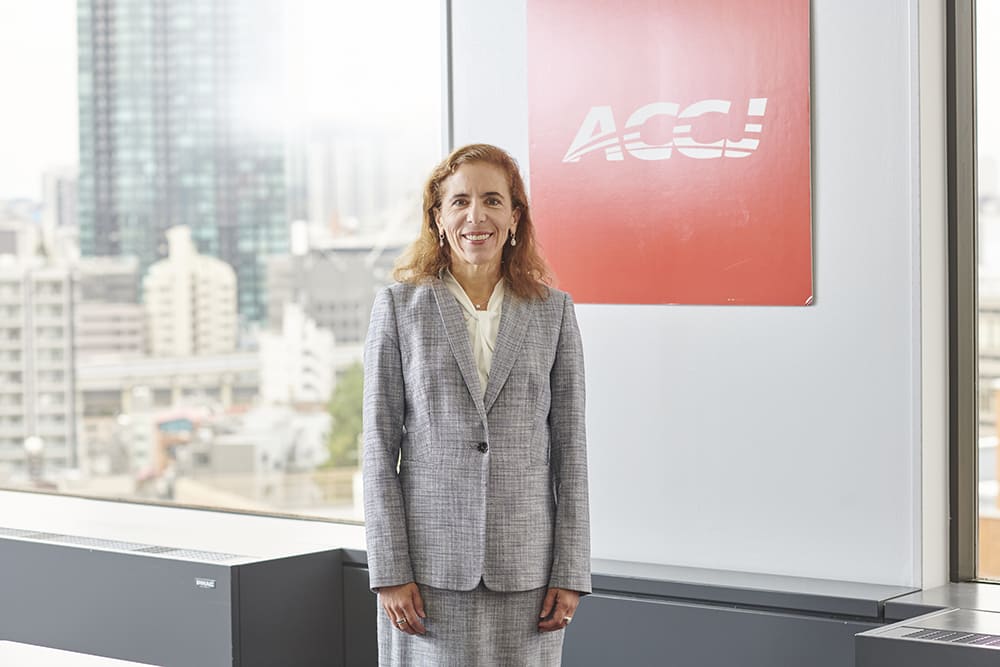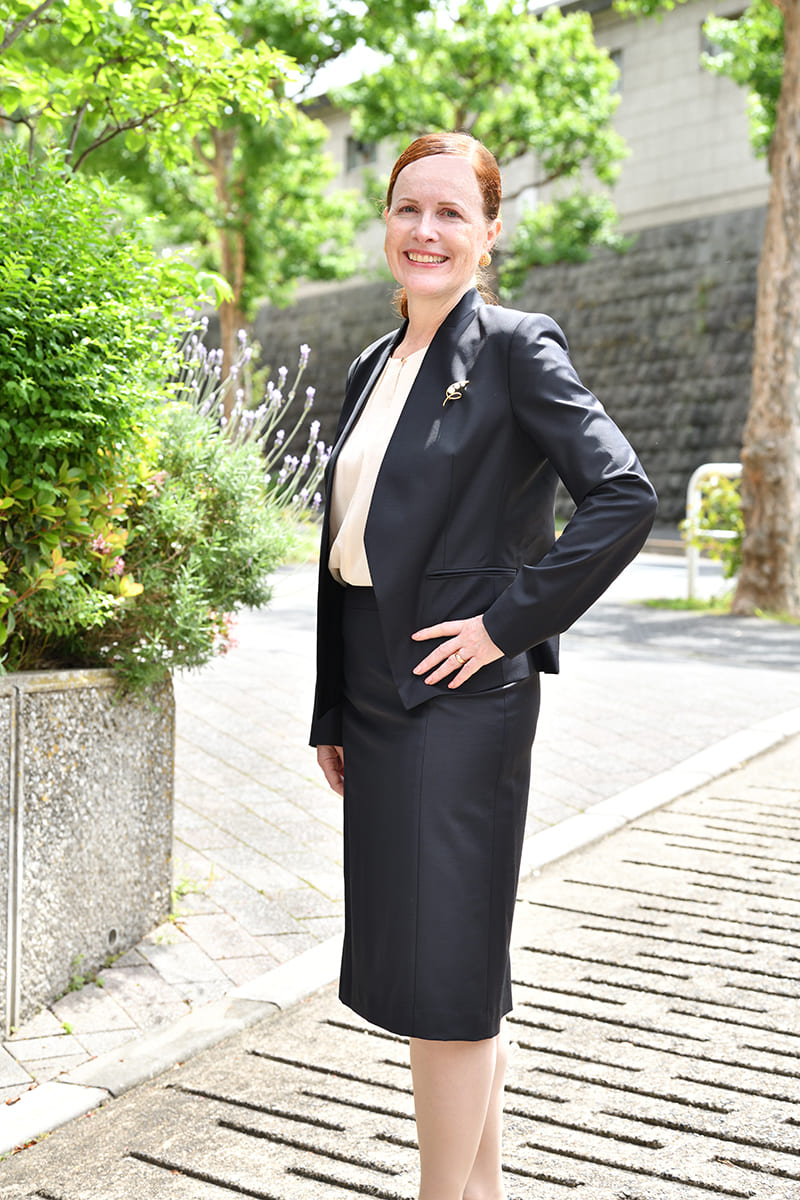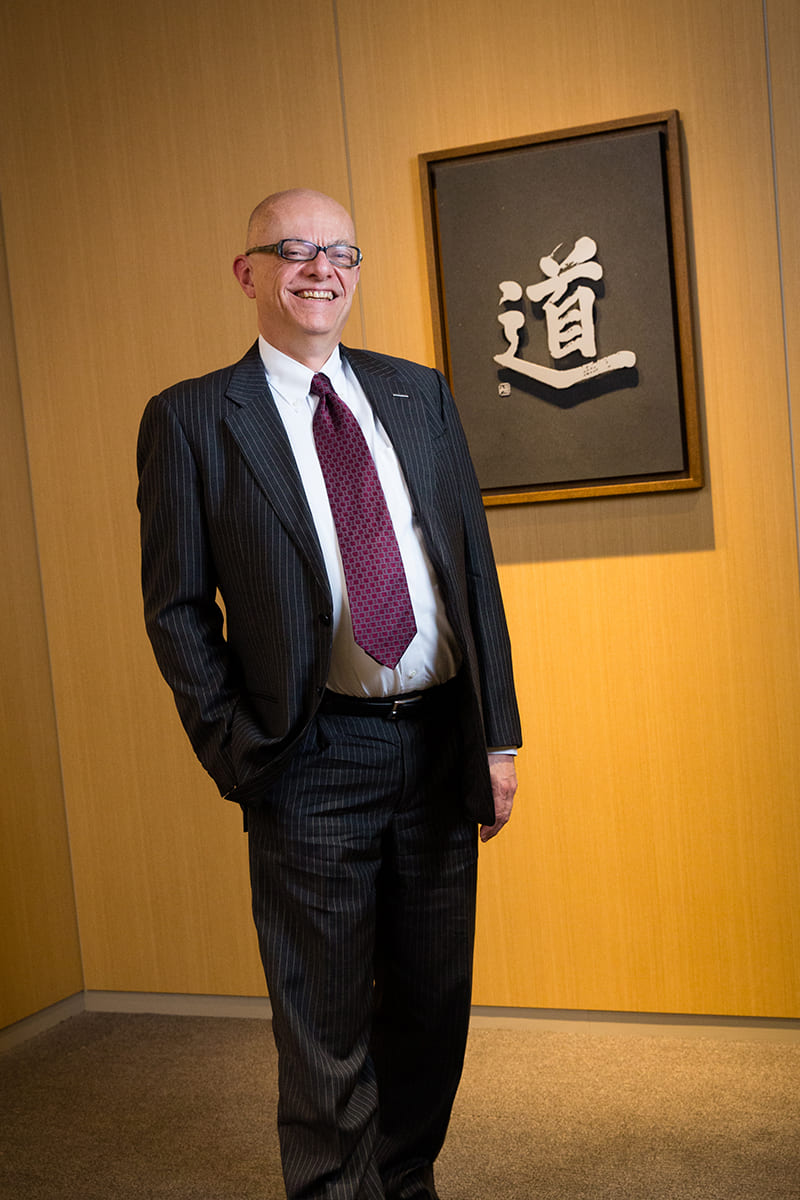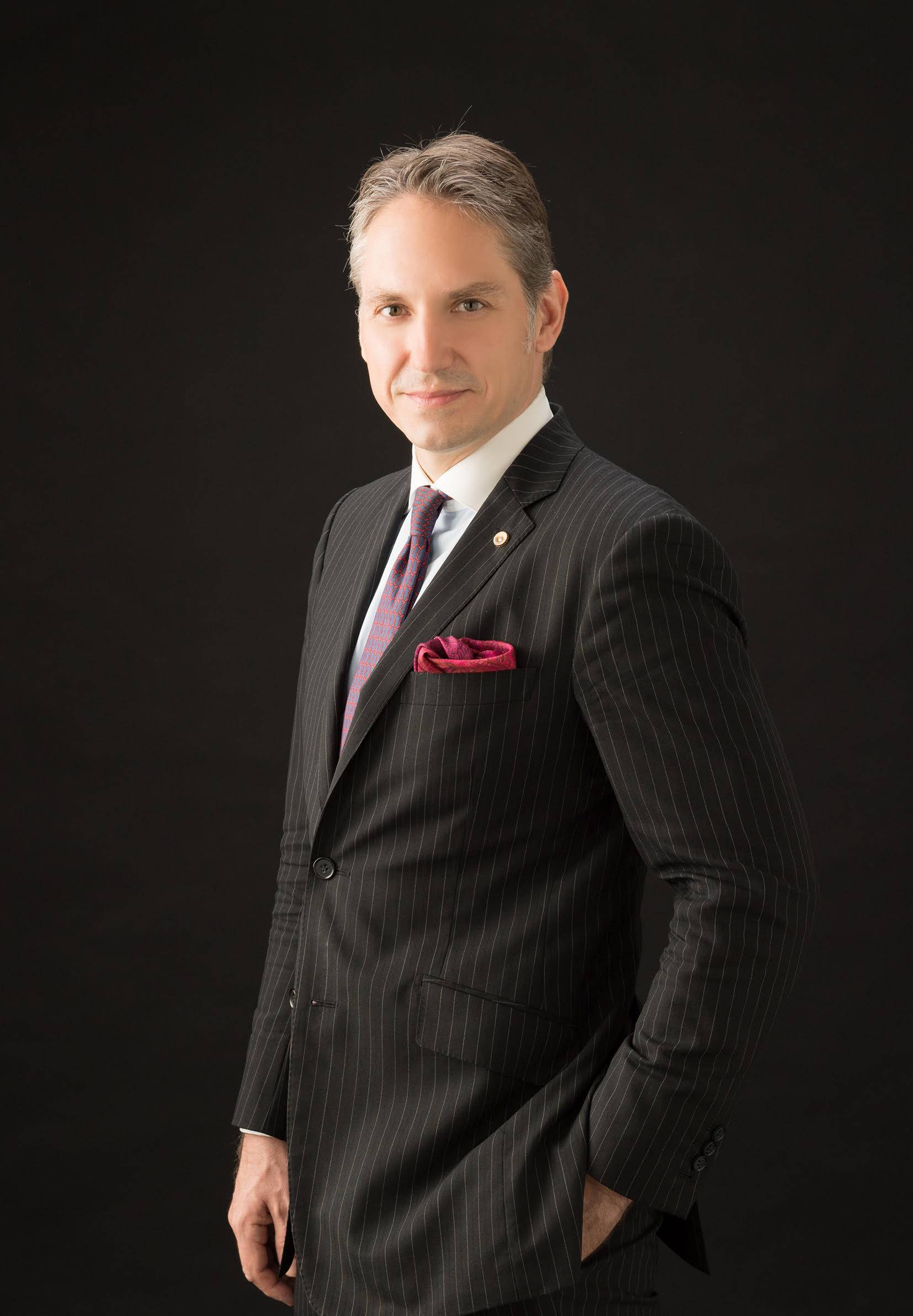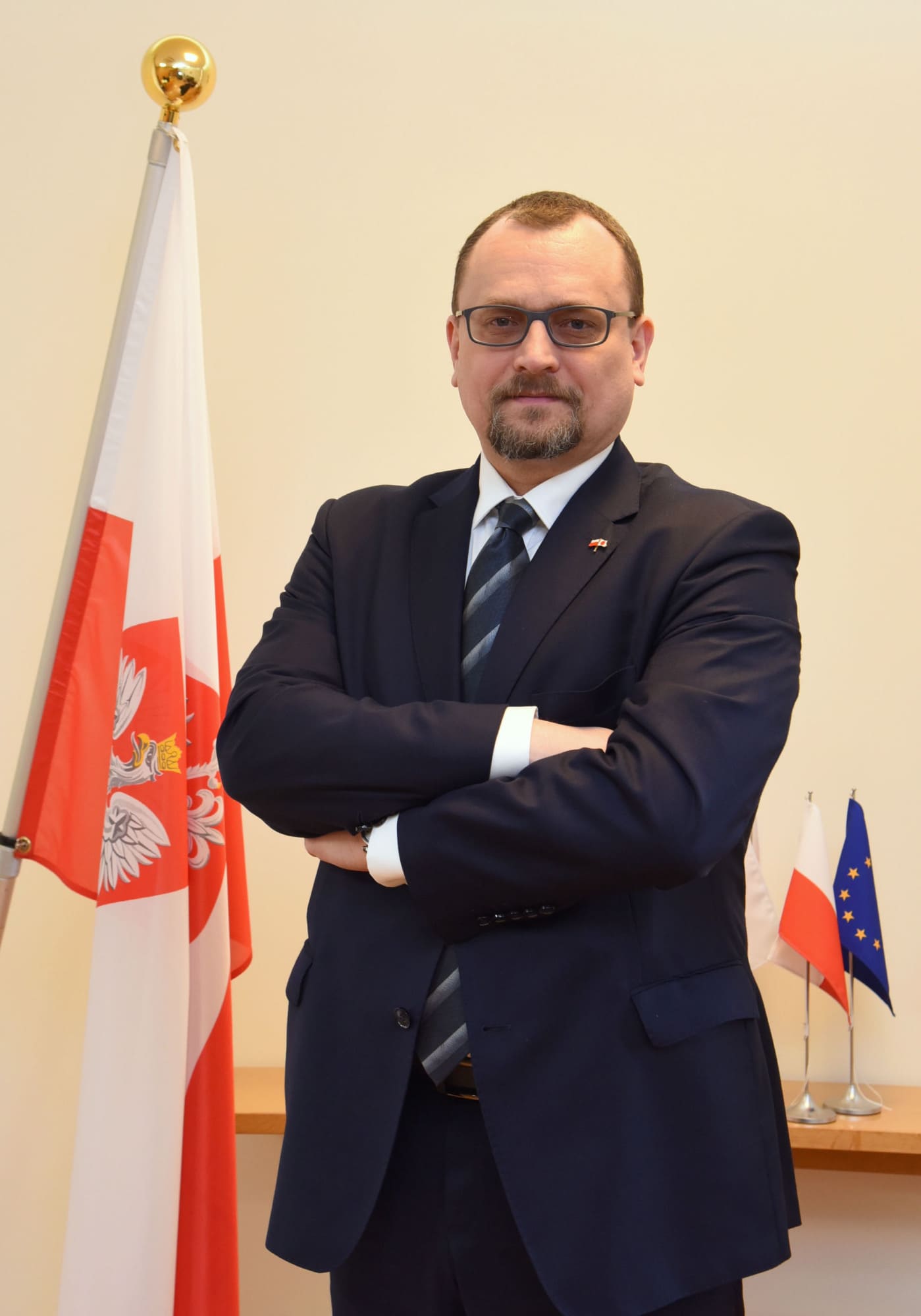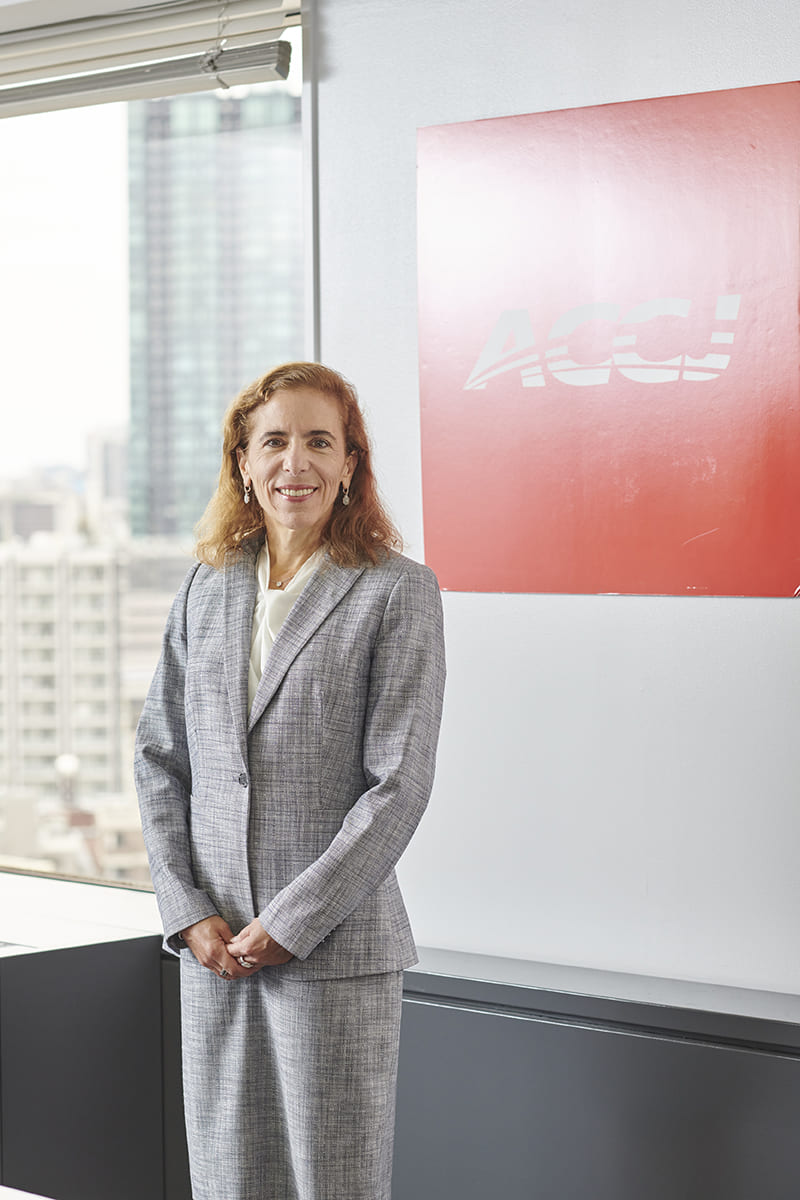
July 19, 2021
President aims to turn social dissonance into dynamic diversity in Japan
Rogers taps ACCJ’s energy for a sustainable future
- Name: Jenifer Rogers
- Title: President of the American Chamber of Commerce in Japan (ACCJ) | General Counsel Asia at Asurion
- URL: https://www.accj.or.jp/
- URL02: https://www.asurion.com/
- Hometown: Midland, Michigan
- Years in Japan: 16
Jenifer Rogers, president of the American Chamber of Commerce in Japan (ACCJ), is a familiar face among the upper echelons of Japan’s corporate community. In 2015, she became the first foreign female director of a Japanese trading company when she was elected as external director of Mitsui & Co. and has since served as a non-executive director at Kawasaki Heavy Industries and Nissan.
When she is not running board meetings at the ACCJ or attending board meetings at some of Japan’s largest corporations, Rogers serves as general counsel Asia at Asurion, a global tech services company.
Commenting on how she balances the responsibilities of her numerous positions, Rogers noted her ability to compartmentalize. “Because I have so many interests and everything sounds so fascinating, I have a hard time saying no,” she told The Japan Times, speaking from the ACCJ office in Tokyo’s Azabudai district. “I love everything I’m doing, so one of my biggest challenges is just to compartmentalize and focus on one thing at a time. I’m learning to embrace that, and I’m having a good time.”
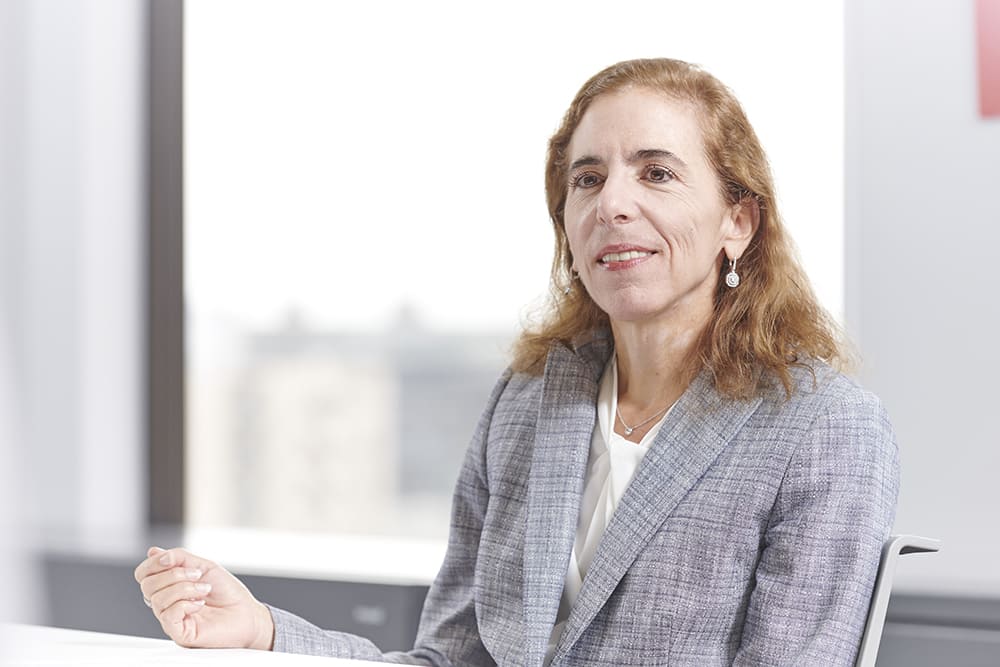
Rogers’ recent activities in Japan started in 2014, when she relocated from Hong Kong to Tokyo in her current position at Asurion. However, her relationship with Japan spans decades. In the 1980s, her father was president of Dow Chemical Japan, and it was this familial connection that led her to Japan for the first time in 1981.
Back then, Tokyo was not the international city it is today. Rogers noted how difficult it was to get around as a non-Japanese speaker. There were no bilingual signs, and if she got lost, her only option was to ask for directions at the nearest koban (neighborhood police station). “It was a very different city,” she said. “I still saw women in kimonos and there was still a lot more of ‘traditional Japan.’ Don’t get me wrong, Tokyo was modernizing — you still had the subways — but it was still a Japanese city.”
Rogers’ initial stay in Japan shaped her interest in international relations. She had planned to go to nursing school after returning to the U.S., but her experiences studying at Sophia University, where she interacted with people of various nationalities and engaged with global issues, inspired her to shift her focus: “I started to think about how to make a difference in the world through cross-cultural understanding in the international arena.”
Propelled by her new passion, Rogers returned to the U.S. to enter Georgetown University’s School of Foreign Service, where she developed a foundation in economics and foreign policy. After graduating, she decided to enter the Georgetown Law Center. “When you think about what you can change and how you can engage internationally, and look at the institutions, you realize everything relates to law,” she said. “Law school was a way for me to combine my interests and prepare for a career abroad.”
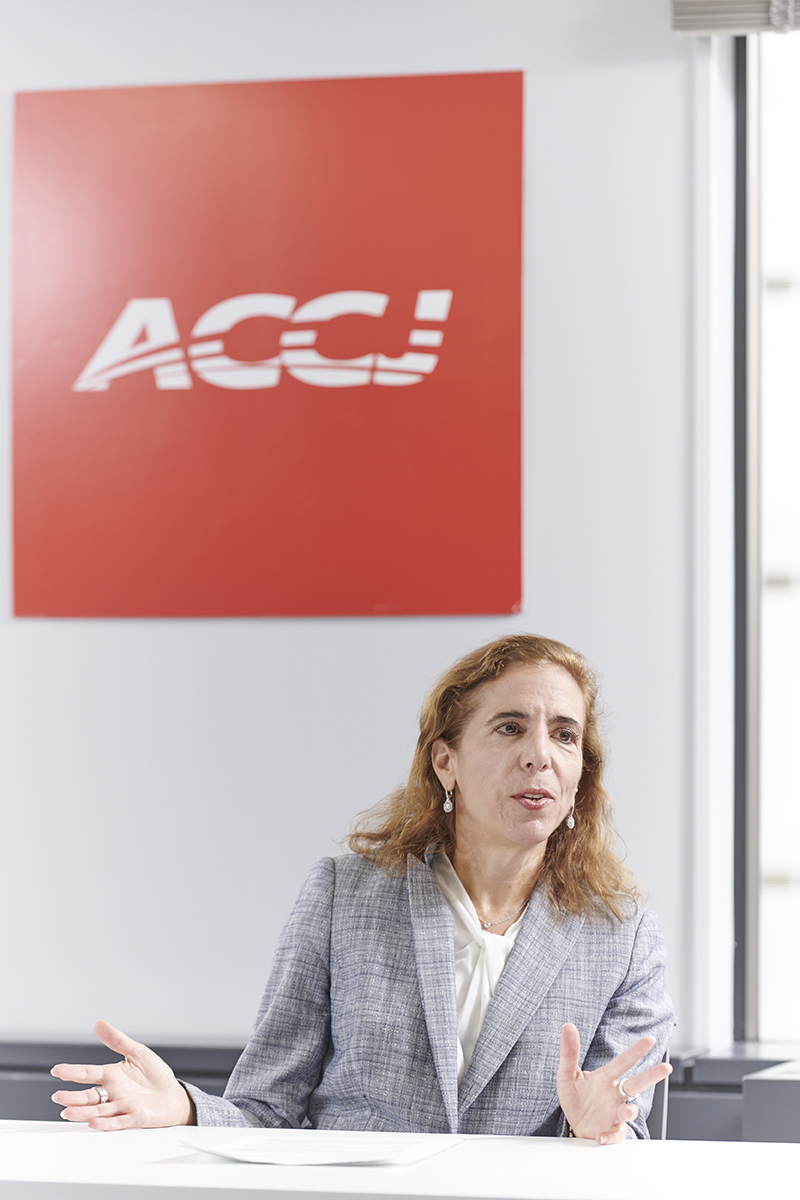
Rogers has since led a prolific international career. For 18 years she worked at Bank of America Merrill Lynch (now BofA Securities), where she served in a variety of senior legal roles in New York, Dublin, Hong Kong, London, Tokyo and Mumbai. She also worked as a legal consultant for the World Bank, while obtaining her master’s degree in international public policy during a self-described “sabbatical.”
Considering her expertise and fluent Japanese abilities, it is no surprise that Japan’s business community looks to Rogers for her perspective on various topics, including risk management and corporate governance. It is also noteworthy that she is one of only a few foreign female directors in Japan. Japan ranked 120th among 156 countries in gender equality in 2021, a disparity reflected in the mere 8% of board seats occupied by women at listed companies in Japan. For comparison, as of 2021, women occupied 45% of board seats at listed companies in France and 26% in the U.S.
Despite Japan’s comparatively slow progress toward gender equality, Rogers is optimistic about the future. “I think you’re seeing an acceleration in the appreciation of diversity and inclusion,” she said, noting that when she arrived in 2014, only about 2% of board seats were occupied by women, a quarter of the level now. Japan’s aging demographics, compounded by the effects of COVID-19, which have dispelled stigmas toward remote work, have also contributed to this acceleration, she said.
“Diversity is discomfort,” Rogers said. “Japan is a harmony-based society that emphasizes compromise, but you’re going to have debates when talking to people with different backgrounds. Turning that concept of constructive dissonance into something positive that can encourage us to reach consensus in a more dynamic way is something that excites me.”
As president of the ACCJ, Rogers taps into this excitement toward dynamic consensus-building when advocating for the chamber’s interests, which are centered on four areas: U.S.-Japan partnership, digital transformation, health care & retirement and sustainability. With regard to sustainability, the chamber has offered recommendations to the Japanese government on how to reach its target of carbon neutrality by 2050 and is working with its members to ensure responsible supply chains and ESG (environmental, social and governance) disclosure.
“We have a lot in the pipeline, and I think sustainability is going to be one of our most exciting areas,” she said. “We have so many ways we can contribute, and we’re focused on harnessing the energy of our diverse members.”
